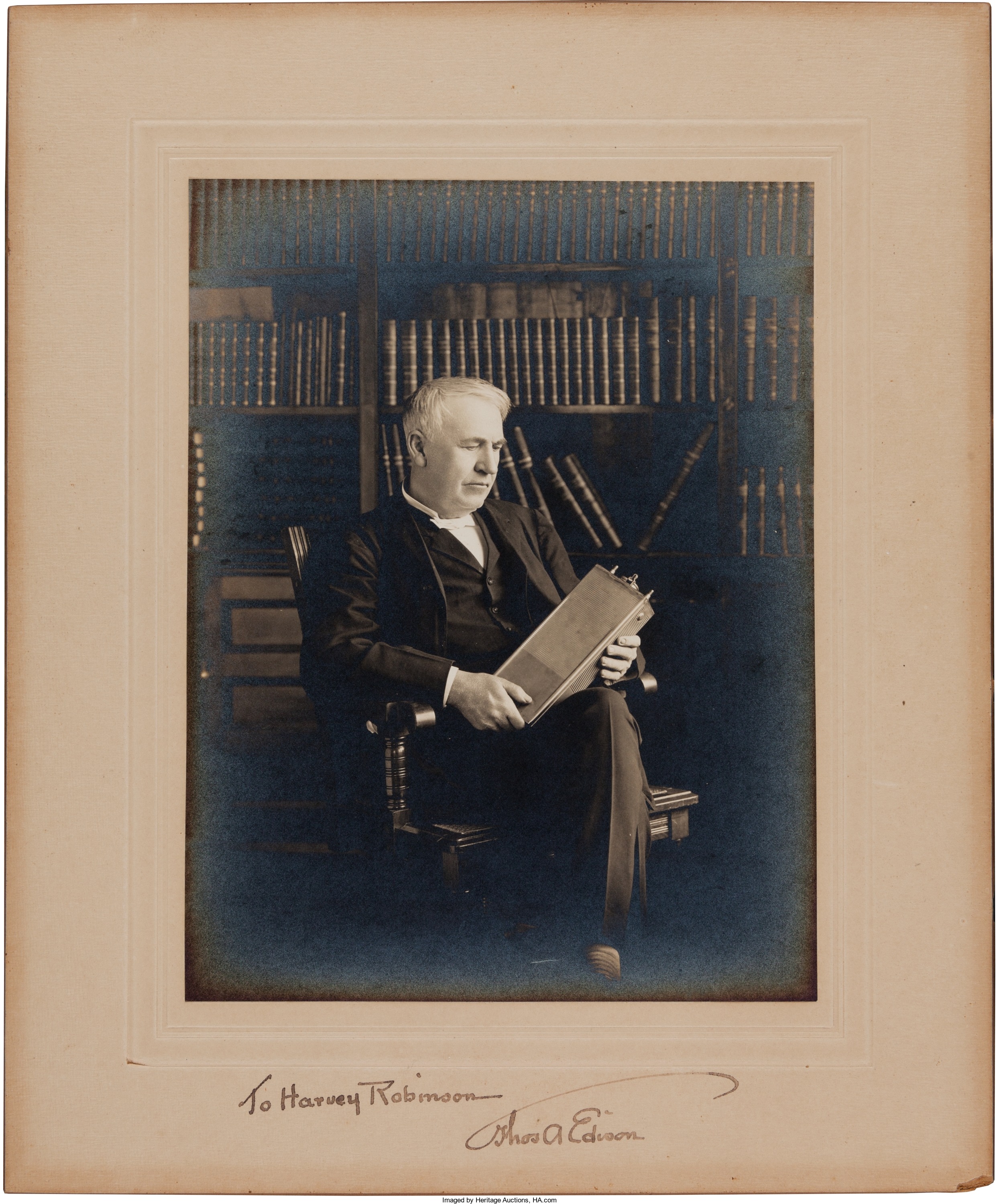
By Jim O’Neal
Thomas Alva Edison was awarded about 1,100 patents in the United States and more than double that worldwide.
They are generally grouped into categories that include electric power, telegraphy/telephony, recorded sounds, batteries, cement and motion pictures. His practice of keeping meticulous records to protect his intellectual property became the “gold standard” for future scientists, engineers and inventors in general.
Naturally, he made a lot of money, which proved useful when some of his ideas turned out to be expensive commercial failures. At times, he appeared to lack practical sense or perhaps he lacked the “Steve Jobs gene” when it involved customer preference. Another more plausible explanation is that he simply did not care, period.
One of the more interesting examples is his refusal to adopt the concept of movie theaters (people might sneak in without paying), so he held out for hand-crank, peep-show boxes. In 1908, he confidently predicted that airplanes had no viable future (the Wright brothers disagreed).
Then he became mesmerized by the possibilities for concrete and formed the Edison Portland Cement Company and built a huge factory. By 1907, Edison was the fifth-largest cement producer in the world and had four dozen patents to make a better cement, some of which was used to build Yankee Stadium.
But his abiding passion was to fill the world with cement houses.
The concept was to pour concrete into giant molds to form walls and floors, followed by baths, sinks, cabinets, toilets and even picture frames. A four-man team could build a new house every two days for $1,200 (one-third the cost of traditional structures).
The concept was scheduled to be showcased at a cement industry convention in 1912 in New York. However, when the show opened, the Edison exhibit was empty and Thomas Edison never discussed the issue publicly. There was also no word on the fate of the cement piano that was scheduled to be exhibited.
He was now interested in modernizing war and casually predicted he would be able to induce comas in enemy troops through the use of “electrically charged atomizers.” It is not clear how this idea was abandoned. He also worked on a plan to build giant electromagnets to catch enemy bullets in flight and then “return to sender.” It was another mysterious project that was abandoned.
One last example was a heavy investment in an automated general store where customers would insert coins into slots and then bags of coal, onions, nails or potatoes would come sliding down the chute. The system never worked. It never came close to working.
If you believe in reincarnation, then there is a good chance Thomas Edison is back. This time his name is Jeff Bezos, who had a nutty idea about selling books over the internet and now owns a major print newspaper and is in a race to conquer outer space, since NASA has scaled back. Elon Musk has managed to find time to enter the rocket business, too, while he tinkers with electric cars and batteries.
Our country seems to be blessed when it comes to producing geniuses. Let’s hope the government doesn’t put up too many regulations or red tape as we go hurtling into the future.
 Intelligent Collector blogger JIM O’NEAL is an avid collector and history buff. He is President and CEO of Frito-Lay International [retired] and earlier served as Chairman and CEO of PepsiCo Restaurants International [KFC Pizza Hut and Taco Bell].
Intelligent Collector blogger JIM O’NEAL is an avid collector and history buff. He is President and CEO of Frito-Lay International [retired] and earlier served as Chairman and CEO of PepsiCo Restaurants International [KFC Pizza Hut and Taco Bell].
